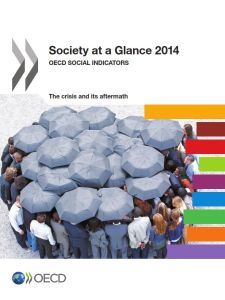This OECD report delivers valuable empirical data on the social situation in the wake of the recession in more than 40 countries. The data present a troubling view of global well-being. Despite people’s need for benefits and services, many countries – burdened by the recession and decades-long deficits – cannot afford to help their people. This information about fallout from the recession may prove revelatory as future generations deal with deep-seated social and economic problems. getAbstract recommends the OECD’s research to government leaders, NGOs and social services planners.
The Economic Crisis and Global Society
The effects of the 2008 fiscal crisis and the recession that followed still linger. Young people, men and the poorly skilled are the hardest hit. In 2012, the percentage of young people “not in employment, education or training” rose to 20% or more in Greece, Italy, Mexico, Spain and Turkey. Nearly 13% of working-age people in most nations live in homes where no one has a job.
The Gallup World Poll found that 25% of respondents in OECD countries reported income shortfalls in 2012, though stimulus efforts and aid programs helped the less well off. Lower-income young adults and families with children now are at a greater risk of poverty than they were in 2007; poverty in the US has risen by more than 20% since then. The trends reveal that, no matter how much economies grew from 1979 to 2005, poorer households lost “market income” – that is, earned income minus taxes. Income inequality broadened in both good and bad times.
Hard economic times add to the burdens of individuals, families and society. State fiscal restraints have dimmed the prospects of a good education, at least one that is partially government financed: On average...









Comment on this summary